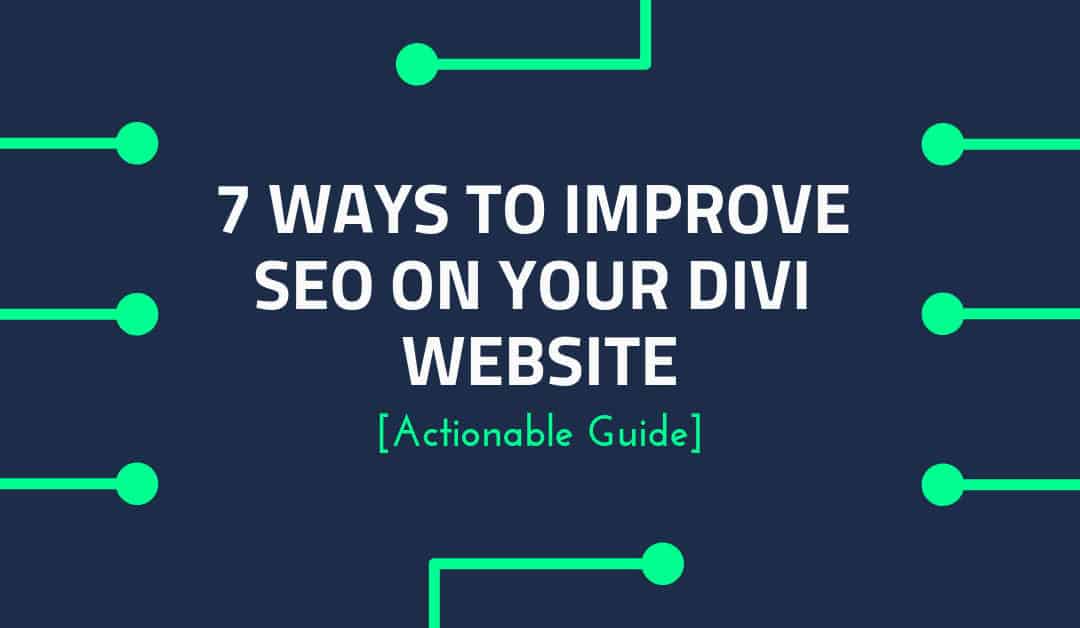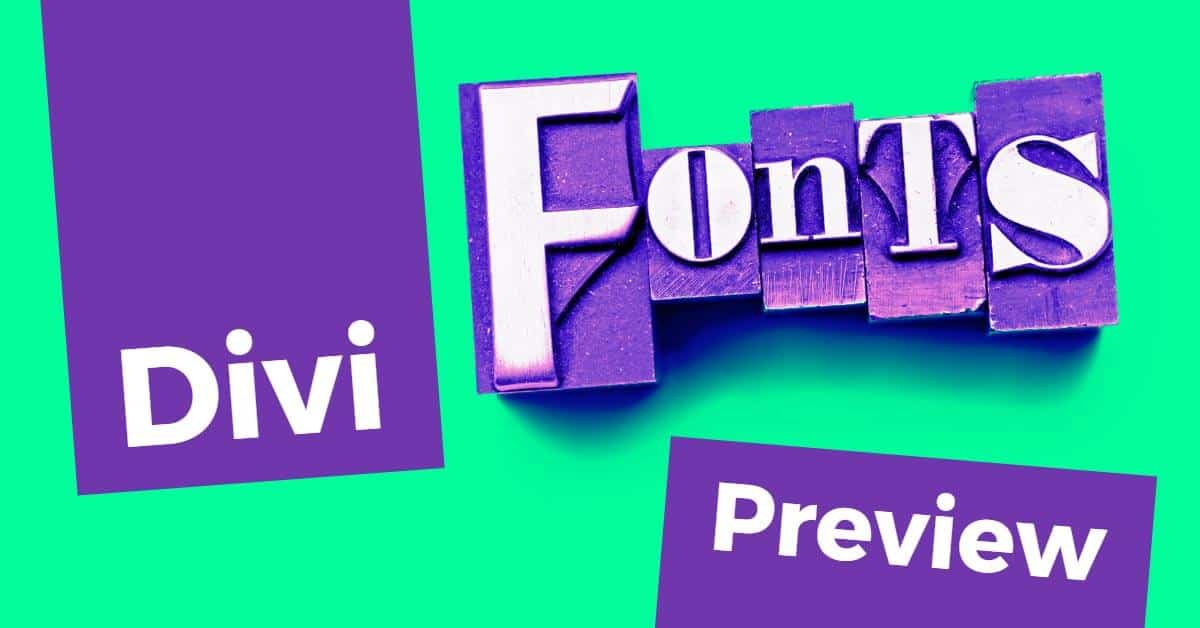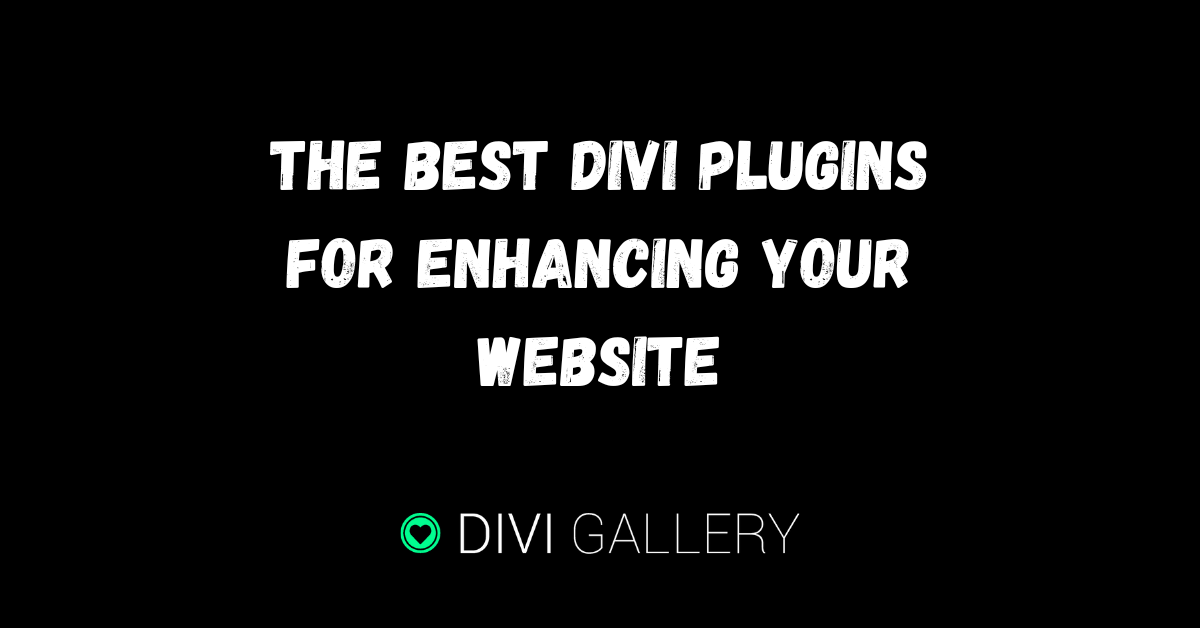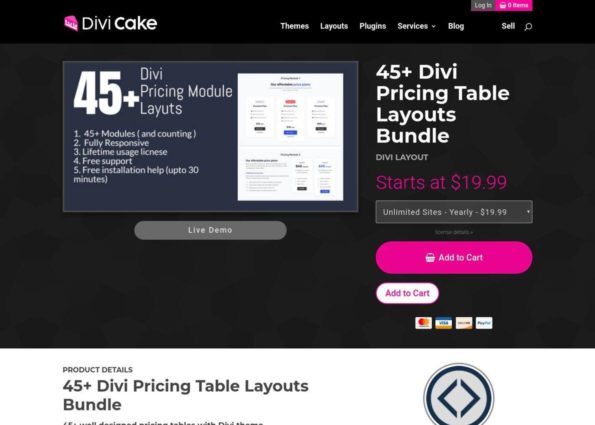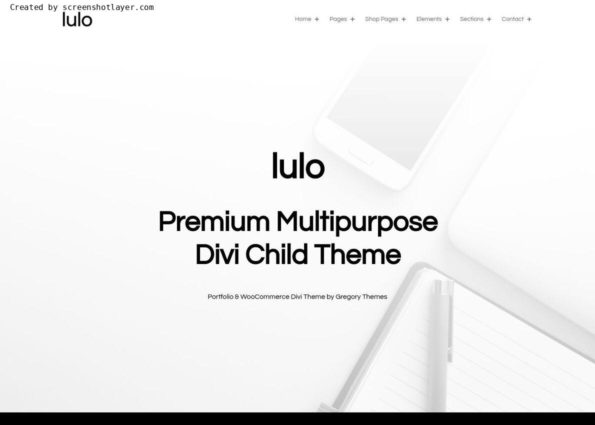SEO or Search engine optimization is a process that’s extremely important to the success of any online business. However, the widespread popularity in online business has lead to people complicating SEO to a point where the fundamental of providing real value is forgotten too long complex SEO checklists and processes.
Sure, the internet in 2018 is more competitive than it has ever been, and SEO has changed from simply stuffing a bunch of keywords to a (scientific) process. This new process can be broken down and prioritized into a simple and hassle-free process.
This article is written with a goal to help you utilize the best actionable SEO practices to get your Divi website ranking higher organically. The key here is ‘actionable’, meaning something you can use right away to see real results and ‘organic’ search results. For the record, you can also use paid advertising, however, paid advertising doesn’t require higher up-front costs and the results stop after you stop paying.
Table of Contents:
- Search Engine Optimization (SEO) 101
- Divi SEO Myths
- Best SEO Practices for Your Divi Website
- Final Thoughts
Note: We find and review products to help you make better decisions when buying the things you need. Our opinions are our own, and in no way are influenced by an affiliate commission. If you use one of our affiliate links below, we may earn a small share of the revenue. Thank you for your support.
Search Engine Optimization (SEO) 101

TL;DR SEO or Search Engine Optimization is the process of optimizing your content so that it’s recognized by search engines, and at the same time making sure it answers the user’s query.
Google is by far the most popular search engine on the internet. Everyone and their mom uses it to search for literally anything you can possibly imagine (and much more!) This means that Google is the most important link between your business and the people you target on the internet.
And it is through SEO that you can tell Google if your website is worth ranking for. While this may sound simple, it is no easy feat, especially when there are thousands of people trying to communicate the same message, and it’s Google’s job to filter out the bad from the good.
How Google Determines Who to Rank
Google follows sophisticated algorithms that are very good at de-cluttering spam, and low-quality websites from the ones that are actually worth ranking. The algorithms use a number of factors that act as quality checks to determine if a website meets the requirements.
This is where SEO comes into play, and is the only way you can tell Google to rank your website higher than the other competitors. It is also the only way you can reach your audience! (unless you’re willing to break the bank on Paid Advertising)
So, ultimately, to reach your audience you need to meet the strict requirements of its algorithm, and more importantly do it better than the competitor. Ultimately the website that’s following the best SEO practices gets that top spot on the SERP.
Myth #1: Divi Is Bad for SEO
In the WordPress industry there’s a lot of negativity towards page builders. Before I share strategies and tips for better SEO, I think it’s a good idea to share my opinion of Divi (a WordPress page builder) and its impacts on SEO.
Before getting into a full-on the debate, these are the biggest issues naysayers and “SEO Gurus” have against Divi:
- Divi uses Short codes, which is bad for SEO
- Divi websites are heavy and take a too long to load
Myth #2: Divi’s Shortcodes Are Bad for SEO
Sure, coding a website from scratch will result in a cleaner and bloat-free website without any shortcodes, but this will also take a lot of your time and energy that typically isn’t worth it.
Short codes really aren’t a problem!
This is because shortcodes are server-side, so search engines only see the content from inside the shortcode, and not the shortcodes themselves. It is only when Divi is deactivated that this can become a problem. But why would you ever deactivate Divi on a live site?
Shortcodes can sometimes be problematic with meta descriptions on your website. However, this is a problem that can be easily avoided by using SEO plugins like Yoast SEO or others. Yoast gives you control over each page’s metadata, and allows you to change the meta description. It even helps you craft your meta description for better SEO.
Myth #3: Divi Websites Are Heavy and Slow
Divi is a page builder that has a multitude of design options that can add bloat to your website, but overall, Divi is very efficient.
An intensive website with flashy design elements will be much heavier than one that’s simple and minimalist. More importantly, Divi has been continually updating its builder, and is not nearly as heavy. The latest standard Divi websites average 2-3MB in size, which is respectable.
Moreover, page size can be easily reduced by optimizing images and reducing the number of plugins. In most cases, images are the biggest drivers of the page size.
Divi Cake, BeSuperfly, and Aspen Grove Studios are all big players in the Divi WordPress community, and they all use Divi. In terms of SEO, Divi hasn’t impacted them in any negative way. Lastly, SEO today isn’t just related to the theme you use. There are many other factors involved, which I will dive into next.
Best SEO Practices for Your Divi Website
Now that you have a gist of what SEO is, and whether Divi is good for SEO, let’s move onto the best practices for better SEO for Divi websites. I’ve broken it down into the following list:
- Using Plugins for SEO and Caching
- High-quality Website Host with SSL
- Unique Content that Satisfies User Intent
- Good Site Architecture with Relevant Internal Linking
- Internal Linking and Good Site Architecture
- Well Formatted Page Structure with Proper Hierarchy
- Media Rich Content (Infographics, Images, Gifs, Videos)
Using Plugins for SEO and Caching
Although WordPress is an SEO friendly platform, plugins are extensions to take it up a notch. I know earlier I mentioned plugins can increase the bloat of a website, but the following plugins are essential for better SEO:
- SEO Plugins: These make your website more accessible to search engines, and gives you control over meta description.
- Caching Plugins: These make your website load faster, always making sure your user visits the latest updated version of your website
Best SEO Plugin: Yoast SEO

Yoast makes it possible to easily create an XML sitemap that can be used to submit to crawl engines like Google, Bing, and Yandex. As I mentioned earlier, Divi uses shortcodes that can have negative effects on your metadata; however, with Yoast you gain complete control over customizing the metadata. The more metadata, the better the SEO.
I recommend reading our article on the best SEO plugins for WordPress and Divi for even more great information.
Best Paid Caching Plugin: WP Rocket

I use this plugin for all my websites, and recommend it to anyone looking for a reliable, hassle-free, one-click caching solution for their website. It is also backed by an excellent customer service team to help you with custom caching requirements.
Best Free Caching Plugin: W3 Total Cache
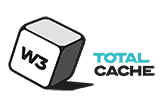
I’ve personally used this caching plugin, and can definitely recommend it to anyone looking for a high-quality free caching plugin. The only catch is it can take some time to set up.
More Information on W3 Total Cache
High-Quality Web Hosting with SSL
A good quality host for you Divi WordPress website can make a significant positive impact on the success of your website, and of course SEO. One critical ranking factor Google’s algorithm checks for is low loading time, which is a feature common to a good website host.
Below are the factors I recommend to look for in a good host:
- Economical Pricing plans
- Fast Loading and Server Response Time
- Secure Anti-DDOS and Other Security Features
- Good Bandwidth and Storage Space
My Recommendation: SiteGround

After personally using this host for almost a year, I can definitely recommend them. They offer excellent customer support, fast servers that never disappoint, and reasonable pricing.
More Information on SiteGround
I recommend reading our article on the best hosting options for Divi and WordPress for even more information on amazing Divi hosting companies.
Unique Content That Targets the User’s Query and Intent
Like I mentioned earlier, Google is the best search engine in the industry. They excel at connecting users to what they are searching for. Gone are the days where you could simply stuff your blog posts and websites with keywords (think keyword density) and see traffic coming in sometime later.
Today, Google uses a very smart algorithm that uses a collection of factors to determine if a website is worth ranking for. The very essence of this is content that is optimized to target the user’s query, and one that actually solves that query by satisfying their intent.
Leverage this is through the following:
- Content Backed by Sound Keyword Research
- Unique Content That Actually Answers the User’s Question
Content Backed by Sound Keyword Research
The most successful content marketers follow sound content research processes. This can be done manually, or by using paid SEO software.
Good keyword research a critical process in any SEO campaign. Without it, you’re simply shooting aimlessly in the dark. It is through keyword research that you find what users are searching for, and finding the juicy keywords that are worth targeting. Once you know what keywords are worth pursuing, you can create content around these keywords and topics. This is a strategy I’ve used with several blog posts. For reference, you can check out my travel blog which contains content created by sound KW research.
Pro tip: If you’re a new blogger/online business, I recommend looking for gaps in the market. For example, keywords with high volume and easy competition that you can realistically rank for.
Unique Content That Actually Solves the User’s Query
Having the right keywords and phrases isn’t enough. Like I said earlier, Google is really good at filtering out the junk. If your website isn’t providing real value to the query it is targeting, you may find you don’t rank in the SERPs at all.
Google tracks this is the following ways:
- Dwell time: How long the visitor stays on your page
- Long click: When the visitor stays on your page without closing it
- Return-to-SERP: Whether the visitor leaves your page and goes to another website on the SERP
Pro Tip: Divi has great split testing analytics integrated within its websites that can be used to track what areas of your website work, and what areas don’t.
Next time you finish writing an article, ask yourself whether or not the article really solves the problem or query the user is searching for. If it doesn’t, rework the article if necessary. Use tools like Grammarly to check reader tone and fix grammatical errors. Additionally, I’d recommend using plagiarism checkers to make sure your content is free of any plagiarism. That’s a surefire way to get de-indexed off Google!
High-Quality Relevant Backlinks
Back in 1996, Google employed a new concept through its patent PageRank. PageRank started ranking web pages based links to other websites, rather than simply human editors.
In fact, today, backlinks are some of the strongest SEO signals. However, obtaining a backlink from a relevant and authoritative website is no easy feat.
I recommend reading Backlinko’s guide to backlinks for further information.
Good Site Architecture with Relevant Internal Linking
Site Architecture is how your website’s pages are organised. Just like in everything, an organised entity is better than one that is haphazardly created.
When done right, site architecture will result in better indexing of pages, higher rankings, and an overall higher engagement from visitors.
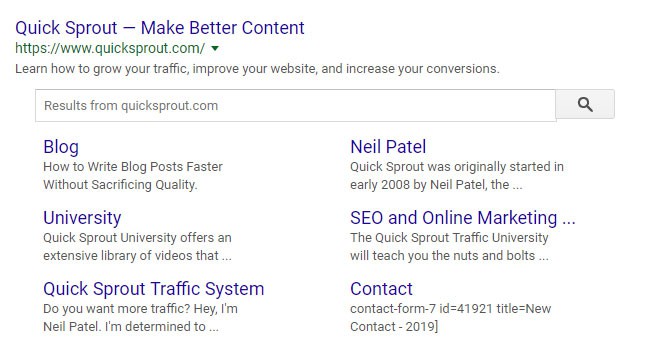
Example of a website by Neil Patel following good site architecture that features site links.
On a micro level, internal linking is the process of including links from your own website within your pages and posts. Internal linking is a great way to tell Google what content on your website is about, and helps your visitors navigate to content relevant to what they’re currently reading.
Good internal linking will result in visitors staying on your website longer, thus showing a higher duration, and ultimately improving your position in the SERPs.
Read more about site architecture from Zyppy.
Well Formatted Page structure with Proper Header Hierarchy
Now while this may not be as strong as the SEO practices I’ve mentioned above, good formatting is directly linked to a better positive experience. People quickly skim through a post before deciding to read it. This is where it pays to have a well-formatted page. Proper formatting tells the visitor it will be easy to read through the post, especially when the headings are well formatted.
Pro Tip: Most visitors use headings as signposts to guide them through a page or article.They also use them to get them back on track if they get lost, so make sure you follow the right formatting for headers. Use tools like Yoast SEO for on-page optimization.
Media Rich Content (Infographics, Images, Gifs, Videos)
Infographics, images, gifs, and videos are together classified as rich media that can take your website to another level. Moreover, humans are attracted to visuals, making them engagement magnets. Rich media more often than not results in likes and shares, which is another important element of SEO.
However, too much of anything is not a good thing, and too much rich media can increase the size of the page/post, thus having a negative effect on SEO. It’s important to have a good balance of media to text to keep the visitor engaged, and to balance out your page size.
Final Thoughts: SEO for Divi Websites
SEO in this day and age is no easy feat, but the fundamentals still remain the same. Create content that genuinely helps people, and make sure that content is accessible by search engines.
Lastly, SEO is not an overnight task. It takes time, and a lot of trial and error before you actually start to see some organic traffic. Just like in everything, there are no shortcuts to success. When it comes to SEO, the best way to succeed is to create an excellent website with stellar content people want to read.
With this, I conclude my short guide on the best actionable SEO practices that will result in higher rankings for your Divi website. Let me know what you think in the comments.

